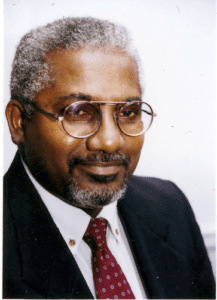By Wilberne Persaud – OilNOW

A few weeks ago, a regrettable faux pas pushed Guyana’s Local Content Policy (LCP) into news headlines across the region.
The Act seeks reasonable retention of benefits generated by activity in the oil sector for Guyanese companies, businesses and workers to a degree that optimizes use of existing and readily created local capacity. The policy encourages both training and transference of skills attainable by the local population — benchmark proportions of the workforce being local are indicated. These are admittedly, worthy objectives.
The awkward occurrence was a leaked e-mail from the CARICOM Private Sector Organisation (CPSO), the fledgling association of regional commercial interests, with four representatives from Trinidad and Tobago and only one from Guyana. The e-mail exposed the group’s dissatisfaction with the LCP. Careless handling of e-mail communication, in and of itself is not a good sign. The question though is, what happens next?
Suresh Beharry, Guyana’s representative on the CPSO, was apparently tasked with conveying the organization’s concerns to the Guyana government. Unsurprisingly, he indicated support for the Act, simultaneously undertaking to broker resolution of CPSO concerns.
Guyana’s Private Sector Commission questioned the “legitimacy” of the CPSO. Subsequent developments suggest the matter remains unsettled. The CPSO’s discomfiture indicates Trinidad and Tobago’s private sector feels the policy, to its detriment, ‘protects’ Guyanese businesses — effectively fetters freedom of commerce and jeopardizes their potential gains.
A brief look at Guyana Bureau of Statistics external trade numbers for the most recent year available, provides a backdrop. Guyana’s exports to Trinidad and Tobago are negligible — reported in the category ‘Other’. CARICOM, the region’s economic integration movement, operating under the Treaty of Chaguaramas, as an agreed matter of policy, seeks to advance the CARICOM Single Market and Economy (CSME).
Regardless, these sticking points are not new. Perceived benefits and costs from ‘integration’ had earlier led Robert Persaud (no relation to the author) during election campaigning in October 2019 to suggest that “… the time has come for us to revisit the Treaty of Chaguaramas … we are the ones … expected to pay more and get less. Trinidad and Tobago has been very predatory in how it has approached opportunities in the oil and gas sector in Guyana, and we need to push back.”
Implementing agreed provisions of the CSME to allow free movement of goods, services and labour across the region proceeds at a faltering pace. Indeed, prior to the anticipated windfall from oil extraction, meaningful negotiations with deeper understanding of common problems and commitment were sorely needed. Complaints of Guyanese about treatment at immigration points of entry in both Barbados and Trinidad and Tobago are well known. ‘Free labour movement’ remains aspirational rather than real.
But benefits of regionalism have been acknowledged. Many reflect on one simple fact: West Indies cricket team’s phenomenal past performance owes its success partly, to the spread of the catchment from which talent is recruited. Yet team selection was often a problem, a big one too. Nationalism, parochialism if you will, intervened. We may also consider the policy advice of Nobel laureate Arthur Lewis in proposing industrialization for the then British West Indies.
His idea was an integrated customs union, but considering low-income levels, small size and population, there was no point in industrialization activities aimed purely at satisfying local demand. We all know how that ended. Import substitution industries never emerged from protected ‘infant industries’ becoming adults and the policy, implemented completely contrary to Lewis’s recipe, failed.
What policy implications flow from reflection on these events? They shriek at us: the need for sensibly-organized, well-defined negotiating arrangements couldn’t be more evident. Trust, confidence and demonstrated reliability between partners in deal-making of any kind, while never a guarantee of success, is the bedrock of high performing mutually satisfying and profitable partnerships. Cooperation embedded in genuine search for equity should prevail. How should, how could this be achieved? Not difficult at all: openly share concerns, be transparent about desired outcomes and, when they conflict, be willing to accept genuinely logical and equitable outcomes. The leaked e-mail created waves, why? Transparency emerged from concerns kept hidden, secret!
Once mutual trust successfully navigates this hurdle, Guyana must confront the fact that business and economic development, adoption of appropriate technologies allowing for reliably functioning production and transportation systems and so much more, all require absorptive capacity. This cannot be overstressed.
Guyana’s population is minuscule. People are the true potential of, and the real developmental resource. Over many years migration hemorrhaged much talent and potential expertise — engineers, operators of heavy machinery, administrators, mid and senior level managers, project managers, the list goes on. Reliance, therefore, shall fall upon skilled workers/professionals not currently available in Guyana. Add the fact that robust institutional capacity lags obvious requirements and needs to be developed. Resolving these issues requires skill sets to be imported — physically and otherwise. A functional professional cadre of recruits from the diaspora, wider Caribbean and other sources should fill these gaps. Even with best practice and huge quantities of flowing oil money, the potential for chaos and avoidable corrupt practices are real. These conditions do not, shall and cannot change overnight.
Some of the problems to be overcome are captured by indices covering ease of doing business, functionality of transportation infrastructure and the like. These are merely a smattering of the list of issues that must be addressed holistically and comprehensively. No amount of robust econometric modelling, optimistic projections and glitter of new-found displays of wealth shall guarantee success in achieving sustainable development, absent absorptive capacity — this takes time to emerge. Optimally, only an effectively functioning government committed to policy implementation oversight can foster this.
If resolution of the CPSO and Trinidad and Tobago’s LCP concerns prove difficult, a mutually acceptable honest broker may be engaged to assist. Once achieved, glimpses of harmonic potential future oil and gas resource exploitation, prudently managed should emerge.
About the Author
Wilberne Persaud is an Economist and former Head, Department of Economics, The University of the West Indies, Mona, JAMAICA.




